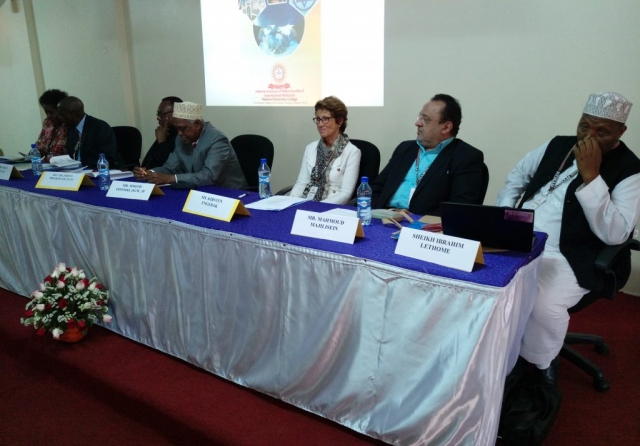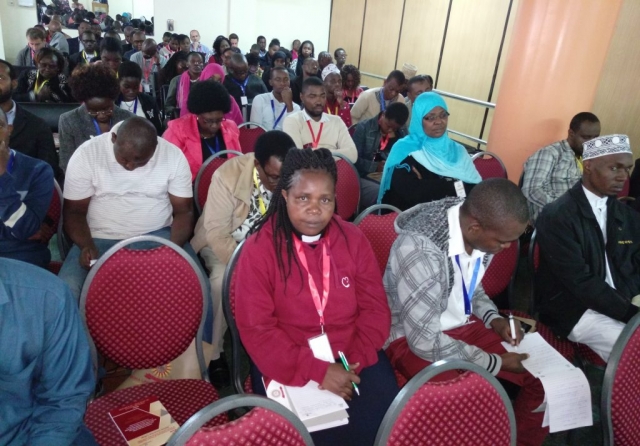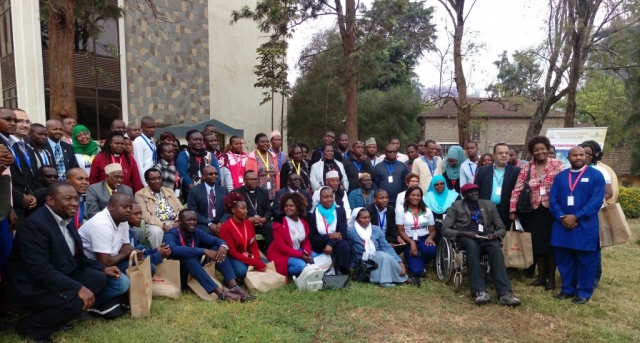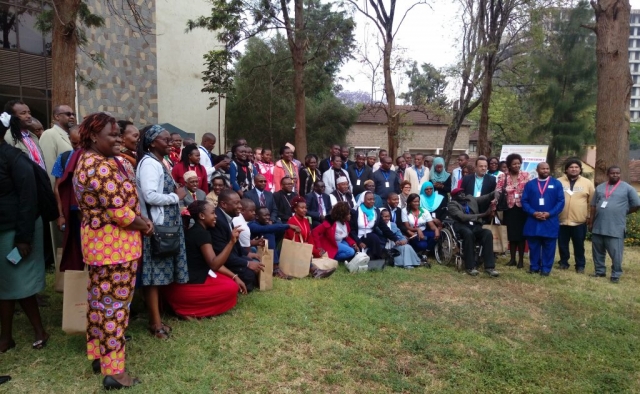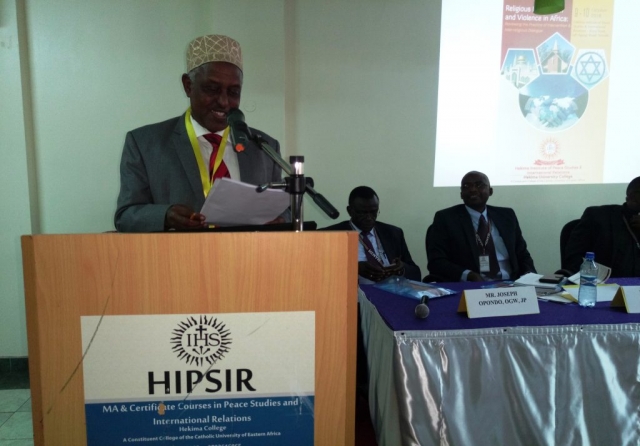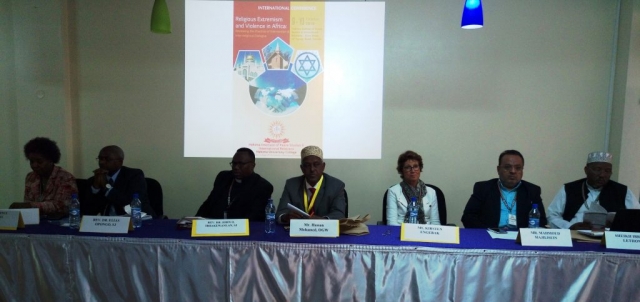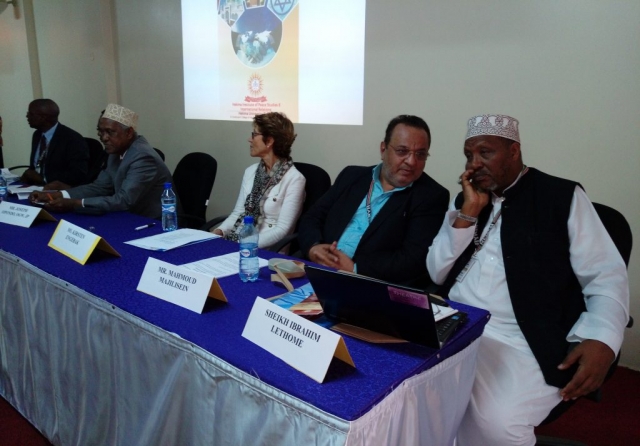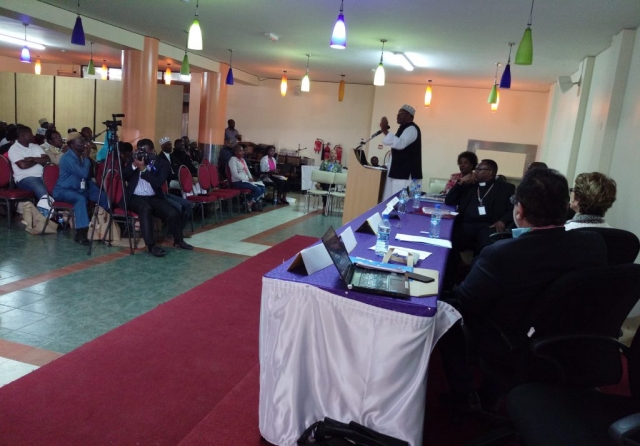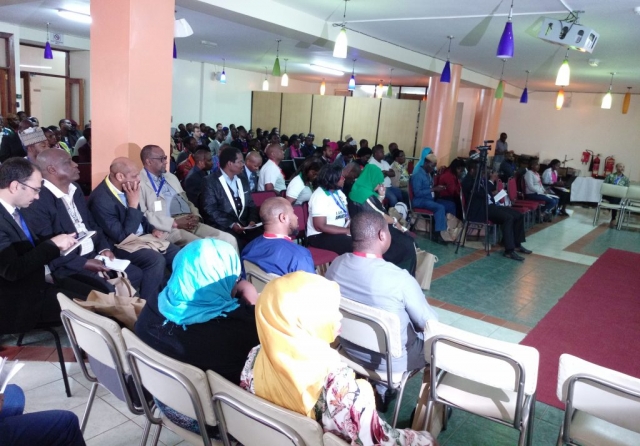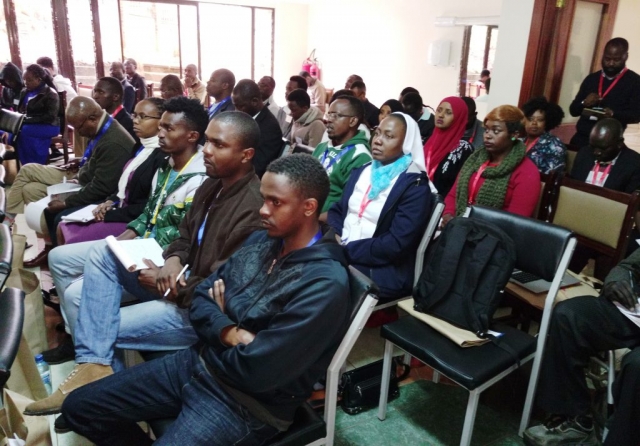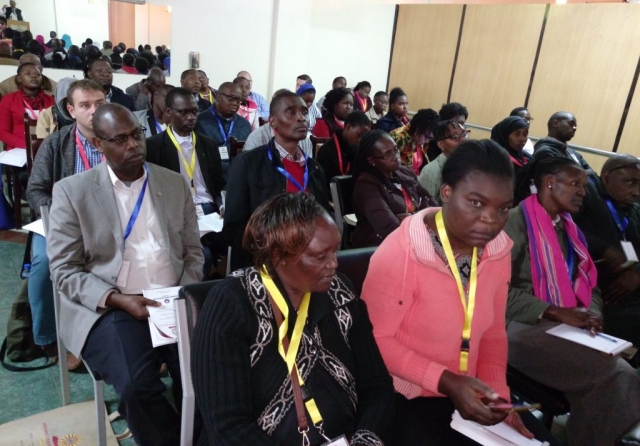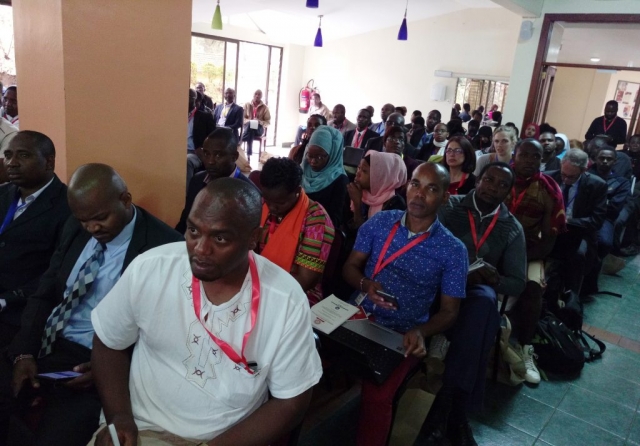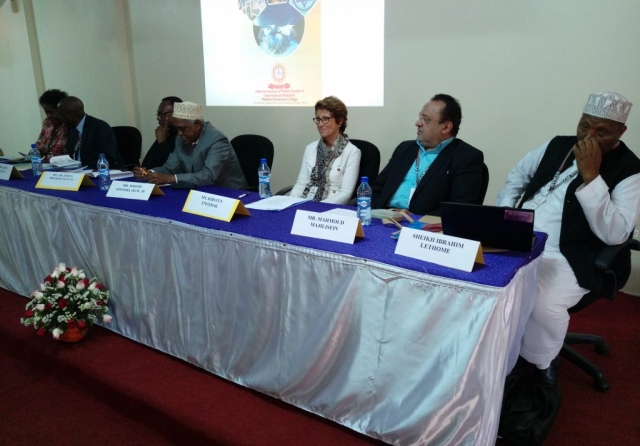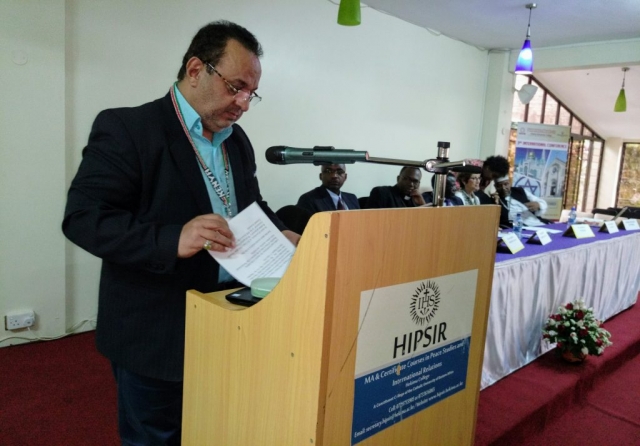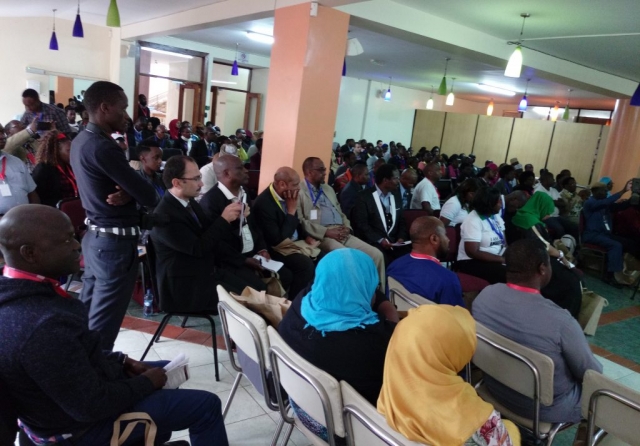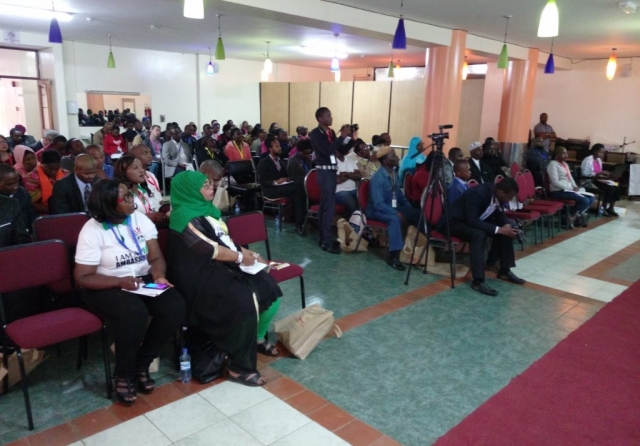The Cultural Counsellor of the Embassy of Iran Mr. Mahmoud Majlesain took part in an interreligious Conference to examine the strategies and responses applied to addressing Religious Extremism and violence at the Hekima Institute of Peace Studies and International Relations on 9th and 10th of October 2018.
Below is the speech of the Counselor Mr. Mahmoud Majlesain
In the name of Allah the compassionate the Merciful
Distinguished guests
Ladies and Gentlemen
Thank you for inviting me to join you at this conference on religion and peace Building. I believe this seminar is particularly relevant and important as we face global threat to World Peace.
Establishing peace is one of the most important desires of mankind today.
But unfortunately the World is full of war and violence.
Especially Some parts of the Middle East have been the site of so much bloodshed and conflicts
I believe that religions play a major role in promoting peaceful coexistence. Every major religion strives for peace and they all share the fundamental messages of humanity and compassion.
The message of all Abrahamic religion is a message of Peace, unity, and brotherhood. Its message is against oppression, injustice and inequity.
Christianity, Judaism and Islam are referred to as the “Abrahamic” religions because they are all rooted in a common ancestor –Abraham.
Just like Abraham, peace is also at the core of the three Abrahamic faiths. It’s so central, in fact, that even the traditional greetings are rooted in peace — “peace be upon you” in English, “shalom aleichem” in Hebrew, “salaam aleikum” in Arabic. Often, this lesson gets lost when the news cycle catches acts of violence and extremism instead of the beautiful, daily efforts men and women of faith make to build a better world.
Each Abrahamic faith has its own approach to the concept. In Christianity, Jesus is used as an example of nonviolence to follow. In Judaism, adherents are taught to “love peace and pursue peace,” and the concept is repeated several times over in other important works of the faith such as Ethics of the Fathers. The very name “Islam” is rooted in peace, a combination of words which roughly translate to “submission to Allah (God),” “safety” and “peace.”
Many interpret peace as the need for interfaith coexistence. In communities throughout the world, you’ll find the Abrahamic faiths partnering together on initiatives which make the world a better place.
Islamic teachings and the holy Quran always emphasize the significance of respecting the freedom and other rights of the followers of the other Abrahamic religions; Muslims, accordingly, hold the followers of those religions in high regard:
Islam teaches peaceful co-existence and the equal dignity of all people.
Islam is a religion of peace. In fact the root word of Islam is ‘silm’ which itself means peace.
And One of God’s names, according to the Qur’an, is , which means peace.
Always in Islam peace has been preferred than war and killing.
In recent years there has been some people who portray Islam as a religion of terror, killing andviolence.
The Alshabaab, ISIS,Daesh and other Takfiri groups use the banner of Islam, to commit murder of innocent people including Muslims.
Certainly, these groups are not Muslims, they only pretend to be Muslims. Islam does not approve the activities of these terrorist groups.
Those who kill in the name of religion do not belong to that religion, be it Islam or Christianity.
This beautiful Quranic verse orders humans not kill a person which God has forbidden. Anybody going against this command, God states it would be as if he has killed all mankind, and saving a soul is as if as saving whole of mankind.
Islam is the religion where killing one human soul is equal to killing the whole mankind, and saving one human soul is equal to saving the whole mankind.
To my last point, in my country Iran, the partnership of the Muslim majority with their Christians, Jews and zorostrians is an example of a good peaceful coexistence amongst different faiths.
Muslims, Christians, Jews and Zorostrians all work together peacefully to defend Iran’s territory and cultural identity.
Despite being a minority they are free to worship and practice their religion peacefully.
Ladies and Gentlemen, as we leave this conference today, let us all be ambassadors of peace and spread the divine message of peace and security everywhere we go. Thank you very much.

